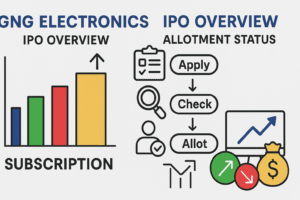Canara and Union Bank Launch Special Deposit Schemes to Boost Growth
Introduction
In an era where customer expectations are rapidly evolving, Indian banks are innovating to stay ahead. Canara Bank and Union Bank of India have recently introduced special deposit schemes aimed at enhancing customer value and driving growth. These initiatives are not only a response to the competitive banking landscape but also a strategic move to attract and retain customers by offering more than just traditional banking services.
Union Bank’s 375-Day Fixed Deposit Scheme
Union Bank of India has launched a unique 375-day fixed deposit (FD) scheme that offers an attractive interest rate of 6.75% for deposits ranging from ₹10 lakh to ₹3 crore. What sets this scheme apart is the inclusion of a Super Top-up Health Insurance cover, providing a sum insured of ₹5 lakh with cashless hospitalisation facilities. This innovative approach combines financial returns with health security, catering to customers seeking comprehensive benefits from their investments.
The integration of health insurance with a fixed deposit is a strategic move to differentiate Union Bank’s offerings in a crowded market. By addressing both financial and health needs, the bank aims to provide a holistic value proposition to its customers.
Canara Bank’s TruEdge Account
Canara Bank has introduced the Canara TruEdge account, a tailored current and savings account product designed to cater to specific operational and financial needs of customers. This account offers a flexible benefit system, including charge waivers and concessions linked to the previous month’s Monthly Average Balance (MAB). Additionally, customers are provided with personalised support through a designated relationship manager, ensuring dedicated assistance for all banking requirements.
The TruEdge account is part of Canara Bank’s strategy to enhance customer engagement by offering personalised services and benefits. By linking account privileges to the customer’s banking behaviour, the bank encourages higher account balances and increased customer loyalty.
Strategic Implications
The introduction of these specialised deposit schemes reflects a strategic move by both banks to enhance resource mobilisation amid slowing deposit growth. By offering added benefits and personalised services, Canara Bank and Union Bank of India aim to differentiate themselves in a competitive market, attract new customers, and strengthen relationships with existing ones.
These initiatives also align with the broader trend of banks seeking to deepen customer relationships through value-added services. By addressing multiple customer needs within a single product offering, banks can increase customer satisfaction and retention.
Banking Sector Trends
The Indian banking sector has witnessed significant shifts in deposit patterns. According to recent reports, the share of term deposits in total deposits has increased to 59.0% in FY24 from 56.5% in FY23, while the share of CASA (Current Account Savings Account) deposits has continued to decline. This shift is a natural response to the increasing interest rate environment, as funds move from low-interest CASA accounts to higher-yielding time deposits.
Additionally, the Reserve Bank of India has highlighted the need for banks to monitor the gap between credit and deposit growth to prevent potential liquidity issues. As of July 2024, bank loans increased by 13.7% year-on-year, while deposits grew by only 10.6%. This discrepancy underscores the importance of innovative deposit schemes to attract and retain customers.
Conclusion
The innovative deposit schemes launched by Canara Bank and Union Bank of India signify a proactive approach to addressing current financial challenges and customer expectations. By integrating additional benefits and personalised services, these banks are setting a precedent for customer-centric banking solutions aimed at sustainable growth.
As the banking landscape continues to evolve, such initiatives will play a crucial role in shaping the future of customer engagement and financial inclusion in India.









Post Comment